Refuge
Here in the US, animal refuges perform a service for society as a whole. In our modern era it is thought cruel to abandon a dog or cat, and why not? Both dogs and cats have lived for thousands of years as partners with human beings, and they have developed a symbiotic relationship with us. From the time long ago when the first wolves dared to come a little closer to humans in their garbage dumps and were thus rewarded with some discarded scraps of food, dogs--and to a lesser extent cats--have been giving up their independence bit by bit to earn a living as our companions.
And what did we get from this growing relationship? Well, watchdogs for one thing, hunting helpers for another, and just plain enjoyable companionship. Yes, our domestic animals--our home companions--have been gaining a living in return for giving up their original antagonism to us and standoffishness from us. After a few thousand years of this developing relationship, our dog and cat friends can no longer fend for themselves in the wild. Indeed, anyone who dumps a cat in the country thinking he will be able to live on the birds and field mice he can catch is fooling himself and betraying the cat.
So it makes sense we would come to recognize our duty to our symbiotic animal friends and establish shelters, refuges, and pounds to avoid their starving to death when they become homeless for any reason. Even though many such unfortunate animals are killed (hopefully by humane methods), such an end is better than condemning them to sickness and starvation without a home. Thus nearly every community has some provision for homeless dogs and cats. It's a societal obligation and rightly so.
In Cuba, privation is ubiquitous, and there is little resource to be devoted to cats and dogs. The government tries to sweep strays from the streets in an attempt to control rabies and present a prettier environment for tourists. But such dog and cat orphans caught in those sweeps are only held for a short time and then killed, often by poisoning. It's a national shame.
I have often said the Cuban people love animals, and one way they have shown that love is that a few have stepped in to try to offer homeless animals a place to live. Rosa runs a refuge for dogs, Rebecca one for cats, and Jose for both. Across the country are good souls who take in and care for animals. They strain their own comfort and well-being to provide some for their canine and feline charges. In doing so, they provide a valuable service for society at large.
The refuge operators are motivated by their love for animals, not by any monetary rewards. Some, who know they must limit the numbers they can help, live stable, enjoyable lives. Others who don't set reasonable limits progress into what we call animal collectors. These, unfortunately, do no favors for themselves or the animals--they only spread misery and often hunger and sickness among their collections.
Still, well controlled or not, Cuba's private animal refuges try to discharge their communities' duties to our animal partners, even if their efforts seem makeshift by modern sheltering standards. Aniplant tries to help these refuges with advice, medical help, and some food rations.
Les Inglis
Friday, December 31, 2010
Subscribe to:
Post Comments (Atom)










































































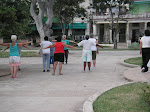
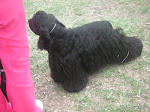
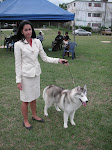








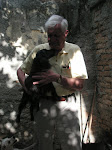





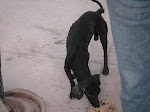


No comments:
Post a Comment